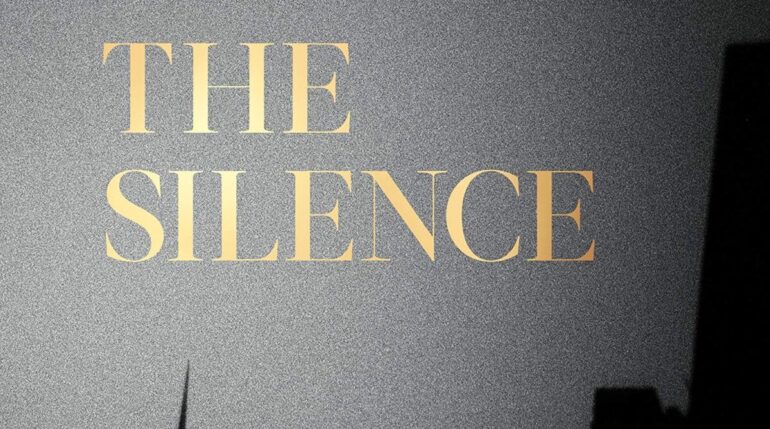Lately, because I’ve been running out of room for physical books, I’ve been getting a lot more on my Kindle. When I found that Don Delillo was releasing a new novel, I requested an advanced ebook and read it all in two sittings. There’s a certain very heavy irony in reading a book like this on a screen after spending all day staring at a screen for a day job and then writing a commentary on it on a screen. After all of which, you are now reading this on screen.
The Silence takes place in the year 2022, as a group of friends head out to meet in a Manhattan apartment for a Super Bowl party, all technology ceases to function because of some unknown force. Two of them survive a plane crash. They meet in the apartment to wait out the event, unsure of how to pass the time with no screens to stare at.
Max doesn’t stop watching. He becomes a consumer who had no intention of buying something. One hundred commercials in the next three or four hours.
The Silence reads like the beginnings of an apocalyptic novel, but is intentionally short, terse, and lacking in conflict or climax. Of the books of Delillo’s I’ve read so far (which, I admit, does not include some of his major works like Underworld) this is the least realist, and, in many ways, is antirealist. The dialogue is intentionally affected and unnatural and the characters talk essentially the same. They also act in very odd ways, such a one who begins to monologue an imagined Super Bowl when the TV no longer works. The couple who survives the plane crash have sex in a hospital toilet in a scene stripped of any eroticism. All of the characters monologue like actors in a play when they meet.
This may sound like the makings of an unappealing read, and to many it will be, but it’s all on purpose and works towards Delillo’s examination of modern consumerism. The modern individual is constantly receiving information that, more often than not, is impossible to integrate leaving them alienated from reality itself. All they are capable of is passive consumption. Even when they’re not directly buying things from stores or online, they always receive advertisements, distorted depictions of commodities. The Silence is a reflection of the fractured mind of the modern American.
Early drafts of the book apparently made direct references to Covid-19 that were later removed. This, to me, was a wise choice as it would have confused things, making it seem like more of direct commentary on the pandemic than it actually is. Covid-19 created a greater dependence on technology due to people being unable to leave their homes, which likely was a factor in Delillo deciding to write this. Much of the action is also confined to a single apartment. Though the characters are able to leave, they have no desire to. While reaction to major disaster is a part of the book, it’s not the main focus.
Despite its focus on American decadence, the style and structure of this book reminded me more of the works of French Noveau Roman authors such as Alain Robbe-Grillet and Marguerite Duras. The characters, plot (if it could be said to have one), and writing style are in service of Delillo’s vision of a post-internet consumerist world rather than vice versa. The result is a hazy, almost dreamlike experience.
However, reminding me of Duras and Robbe-Grillet did emphasize some of the weaknesses in this novel. Delillo, most of all, is engaging in a self-reflection of the themes of consumerism, American identity, and the relations between image and viewers explored in his prior works, even if he does not directly reference plots or characters from them. He does this in a way that I see readers who have read none of Delillo’s other work getting nothing out of this. The imagery and dialogue aren’t particularly striking, something Robbe-Grillet always accomplishes even when he’s being self-reflective or outright repulsive, and the use of constant rhetorical questions in the prose and dialogue give an air of unearned self-importance to it.
While an interesting addition to Don Delillo’s oeuvre, it’s also almost a literal footnote to his other books. A critic of Delillo’s once said that he believed that Delillo wrote critical theory essays disguised as stories. A book like this would do little to dissuade them.
Some of the coverage you find on Cultured Vultures contains affiliate links, which provide us with small commissions based on purchases made from visiting our site. We cover gaming news, movie reviews, wrestling and much more.



